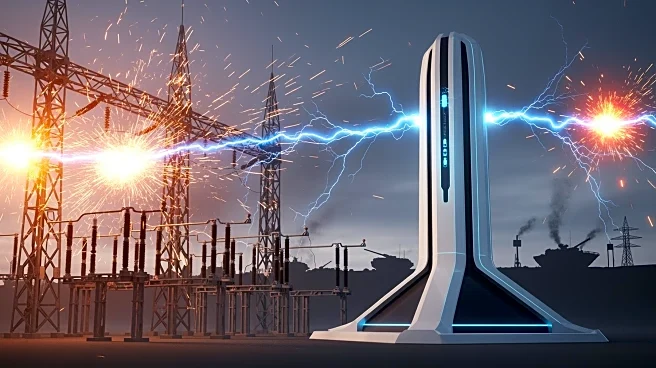What's Happening?
The Balashovskaia power substation in Russia's Volgograd Oblast has been attacked, leading to significant disruptions in electricity supplies to Russian military facilities. This substation is a crucial
component of Russia's Southern energy system, providing power to the Volgograd military district and various defense ministry infrastructures. The attack has further strained energy supplies, especially after the loss of another similar substation, Veshkaima, which has compounded the challenges faced by Russian forces in the region.
Why It's Important?
The attack on the Balashovskaia power substation is significant as it directly impacts the operational capabilities of Russian military facilities in the Volgograd region. Disruptions in energy supply can hinder military operations and logistics, potentially affecting Russia's strategic positioning and defense readiness. This incident underscores vulnerabilities in critical infrastructure, which could have broader implications for national security and military effectiveness. The strain on energy resources may also lead to increased pressure on Russia's energy management and defense strategies.
What's Next?
The foreseeable consequences of this attack include potential retaliatory measures by Russia to secure its energy infrastructure and prevent further disruptions. There may be increased efforts to bolster security around key energy facilities and enhance resilience against similar attacks. Additionally, Russia might seek alternative energy sources or implement contingency plans to mitigate the impact on military operations. The situation could prompt diplomatic or military responses, depending on the perceived source and intent behind the attack.
Beyond the Headlines
This attack highlights the strategic importance of energy infrastructure in modern warfare and national security. It raises questions about the adequacy of existing protective measures and the need for enhanced cybersecurity and physical security protocols. The incident may also influence international perceptions of Russia's stability and its ability to safeguard critical assets, potentially affecting geopolitical dynamics and alliances.










